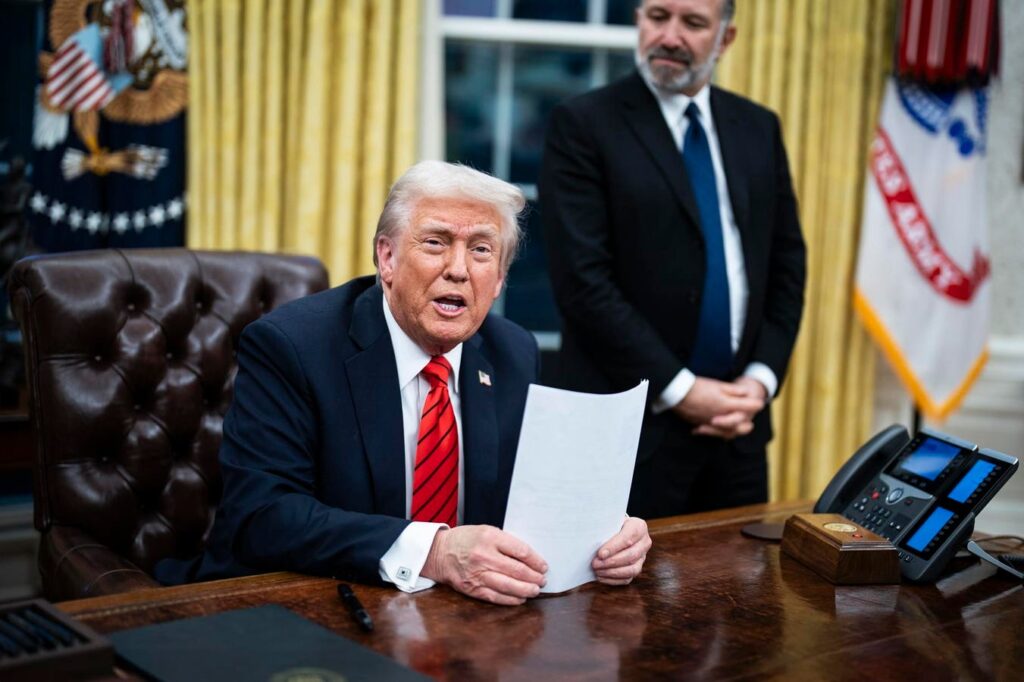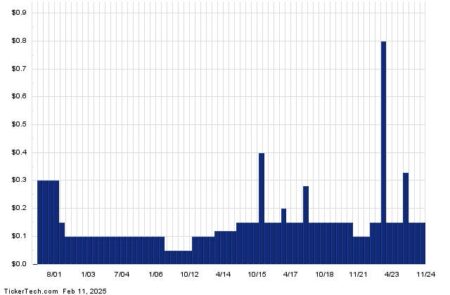Donald Trump’s decision to raise tariffs on steel and aluminum imports has drawn a swift reaction from one trade group warning that the move would have global ramifications.
“President Trump has taken a sledgehammer to free trade with huge ramifications for the steel sector in the U.K. and across the world,” said Gareth Stace, director general of trade body UK Steel. “This will not only hinder U.K. exports to the U.S., but it will also have hugely distortive effects on international trade flows, adding further import pressure to our own market.”
The U.S. President signed proclamations on Monday that impose a 25% tariff on steel and aluminum imports into the U.S. “without exceptions or exemptions.”
“It’s a big deal. This is the beginning of making America rich again,” Trump said as he signed the orders. “No exceptions, no nothing,” he added.
Trump says that China and other countries have been able to exploit loopholes inadvertently created by exemptions granted to allies like Australia, Canada, the EU, Japan, Mexico and the U.K.
The U.S. market has been flooded with cheap steel and aluminum, which is often subsidized by foreign governments, according to Trump. His tariffs are said to be aimed at protecting America’s steel and aluminum industries on national security grounds. But others disagree.
“U.K. steel poses no threat to U.S. national security,” Stace said. “Our high-quality products serve key U.S. industries, many of which cannot source these domestically.”
Stace wants to see the U.K. working together with the U.S. to tackle global excess steel capacity, which is forecast to reach 630 million tonnes in 2026, according to the Organization for Economic Cooperation and Development (OECD).
He noted that Australia may already be in line for an exemption through its negotiations with the Trump administration, and the U.K. government should seek to follow a similar path.
On Tuesday, the U.K. government declined to indicate how it would respond to the tariffs. When asked if the U.S. President was wrong to impose the measures, Prime Minister Keir Starmer’s spokesman said, “We will take a considered approach to this. We will engage with the U.S. on the detail, but the government is clear we will work in our national interest and this issue is no different to that.”
Trade minister Douglas Alexander echoed that sentiment when he said British industry would not benefit from a “knee-jerk reaction” to the tariffs, and the government should instead seek to formulate “a cool and clear-headed” response.
Speaking in the House of Commons on Tuesday, Alexander pointed out that the U.K. has enjoyed a strong and balanced trade relationship with the U.S.—worth around £300 billion ($372 billion) and supporting millions of jobs.
“In trade policy, we stand ready to work with President Trump to find solutions that work for both the United Kingdom and the United States,” he added.
Trump’s steel and aluminum tariffs are just the latest in a string of trade threats the U.S. President has been discussing in the first weeks of his second term. So far, he has imposed 10% tariffs on Chinese goods and threatened 25% tariffs on Canada and Mexico, before reaching hasty agreements with each of their governments.
Read the full article here
















